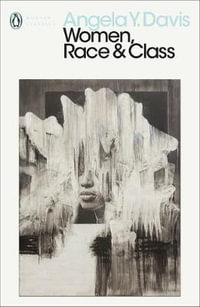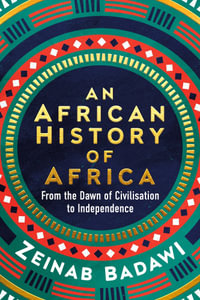In his diary, Antera Duke (ca.1735-ca.1809) wrote the only surviving eyewitness account of the slave trade by an African merchant. A leader in late eighteenth-century Old Calabar, a cluster of Efik-speaking communities in the Cross River region, he resided in Duke Town, forty-five miles from the Atlantic Ocean in what is now southeast Nigeria. His diary, written in trade English from 1785 to 1788, is a candid account of daily life in an African community at the height of Calabar's overseas commerce. It provides valuable information on Old Calabar's economic activity both with other African businessmen and with European ship captains who arrived to trade for slaves, produce, and provisions.
This new edition of Antera's diary, the first in fifty years, draws on the latest scholarship to place the diary in its historical context. Introductory essays set the stage for the Old Calabar of Antera Duke's lifetime, explore the range of trades, from slaves to produce, in which he rose to prominence, and follow Antera on trading missions across an extensive commercial hinterland. The essays trace the settlement and development of the towns that comprised Old Calabar and survey the community's social and political structure, rivalries among families, sacrifices of slaves, and witchcraft ordeals. This edition reproduces Antera's original trade-English diary with a translation into standard English on facing pages, along with extensive annotation. The editors draw on Antera's first language, Efik, to illuminate his diary. The Diary of Antera Duke furnishes a uniquely valuable source for the history of precolonial Nigeria and the Atlantic slave trade, and this new edition enriches our understanding of it.
Industry Reviews
"A remarkable piece of scholarship."--Journal of Colonialism and Colonial History
"There are relatively few sources of African history written by Africans, which promise to give an African viewpoint. Antera Duke's diary is therefore an extraordinarily important source for the history of the Cross River region, and indeed for Africa as a whole. I am impressed with the way in which the edition has been handled, by the supplementary materials and the care that the authors have taken to present the diary and its context."--John Thornton, Boston
University
"[The diary] is a unique primary source of information on the African side of the transatlantic slave trade told from an African slave trader's perspective. As such, the diary has no equivalent as a historical source for anyone interested in the anthropological, economic, ethnographic, political, or social aspects of eighteenth-century trade and life in part of what is now Nigeria."--Vincent Carretta, University of Maryland
"This welcome edition both reflects and adds to the enormous knowledge on the 18th-century Atlantic world and slave trade...[A] necessary addition for most collections. Summing up: Highly recommended."--CHOICE
"What we learn from Antera's diary is more than how he negotiated a position between black sellers and white buyers of slaves and produce. His writings reveal how life for those trading humans was full of the same joys and pleasures, tragedies and pains that people everywhere have felt throughout history. For this reason, I found The Diary of Antera Duke to be important and unsettling. It provides a unique, firsthand perspective of the Atlantic slave
trade, and is a book to which I will return frequently."--Journal of African History
"An indispensible primary source for understanding African and European interconnections and their equal moral culpability for buying and selling enslaved people...[A] work of great scholarship and a model example of how African history can be made relevant to wider historical agendas."--International Journal of Maritime History
"Brings together an impressive range of relevant expertise...[Provides] a general account of Calabar's involvement in the Atlantic slave trade over the entire period from the mid-seventeenth to the early nineteenth century."--The Economic History Review
























